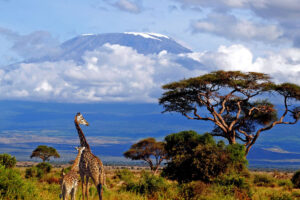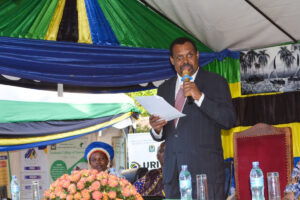
Johannesburg, South Africa
African football boss Patrice Motsepe told a press conference in Johannesburg on Wednesday he believes a team from the continent can reach the 2026 World Cup final.
“Morocco opened the door by reaching the semi-finals this month and I am confident an African nation will go further at the next World Cup,” said the South African billionaire.
“The main objective of CAF (Confederation of African Football) is for an African nation to win the World Cup and that goal is within reach.”
There will be nine or 10 African qualifiers for an expanded 48-team 2026 World Cup in the United Stages, Canada and Mexico — up from five in Qatar.
Morocco made history in Qatar by becoming the first African representatives to reach the semi-finals.
The Atlas Lions stunned Belgium in the group stage, then eliminated two more powerful European sides, Spain and Portugal, in the knockout stage before losing to France in the semi-finals.
“There are at least 10 African nations that can compete at the highest level and win the World Cup,” added Motsepe.
He also hailed Cameroon and Tunisia for shock group victories over five-time World Cup winners Brazil and twice champions France respectively.
“We should be proud of what Cameroon and Tunisia achieved. These and other African countries must learn from Morocco,” said the CAF president.
The shock victories were not enough to get Cameroon and Tunisia past the first round, but Senegal did make the last 16 before being eliminated after a heavy loss to England.
Reigning African champions Senegal suffered a massive pre-tournament blow when star forward Sadio Mane was ruled out by injury.
Motsepe disclosed that a dispute between CAF and sports agency Lagardere had been “resolved amicably”, but refused to give details, citing a confidentiality clause.
Lagardere signed a one billion dollar (940 million euros) contract with the Cairo-based African football body in 2017, which was supposed to last until 2028.
However, just one year into the television and marketing deal, it was scrapped after two legal judgments said it breached competition rules.
A senior CAF official, who requested anonymity, told AFP his organisation would pay Lagardere 25 million dollars in instalments to settle the dispute.
Motsepe said Algeria, Benin, Morocco, Nigeria and Zambia were among countries wanting to host the 2025 Africa Cup of Nations after Guinea withdrew recently, saying they were “not ready”.
Share this news
This Year’s Most Read News Stories

Tanzania can benefit from strategic investment in national pride
Travelling to a few places so far, I discovered that the Tanzanian passport can change the way one is treated at airports and international bordersContinue Reading

British Zanzibar Investor stuck in African island ‘hell hole’ prison
Simon Wood, a British Investor in Zanzibar is being held in a “hell hole” prison after being charged with money laundering by police on the paradise island of Zanzibar after he was arrested with his wife Francesca Scalfari. President of Zanzibar, Hussein Mwinyi, to recieve criticism for the couple’s detainment.Continue Reading

Karume faults lease of Zanzibar Islets
Diplomat Ali Karume has faulted the decision by the revolutionary government of Zanzibar to lease the islets that surround the islands of Unguja and Pemba to private developers saying it was absolutely not in Zanzibar’s national interests.Continue Reading











